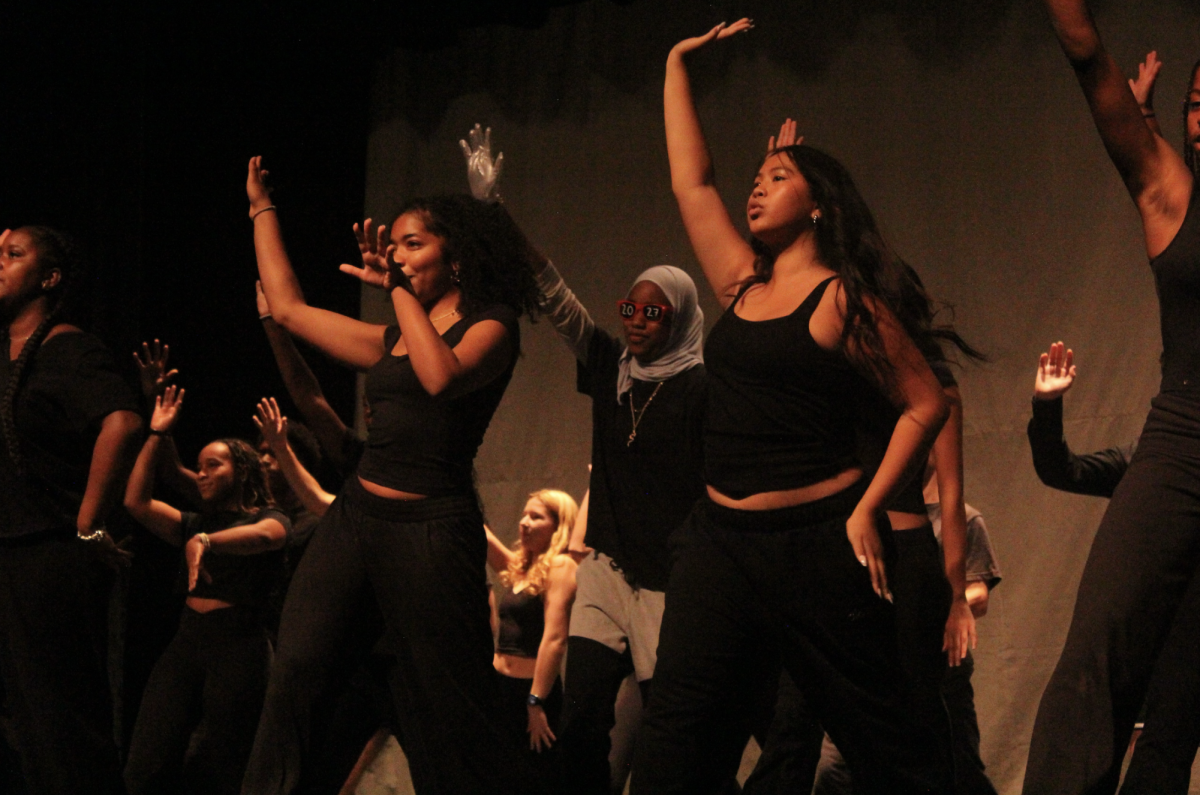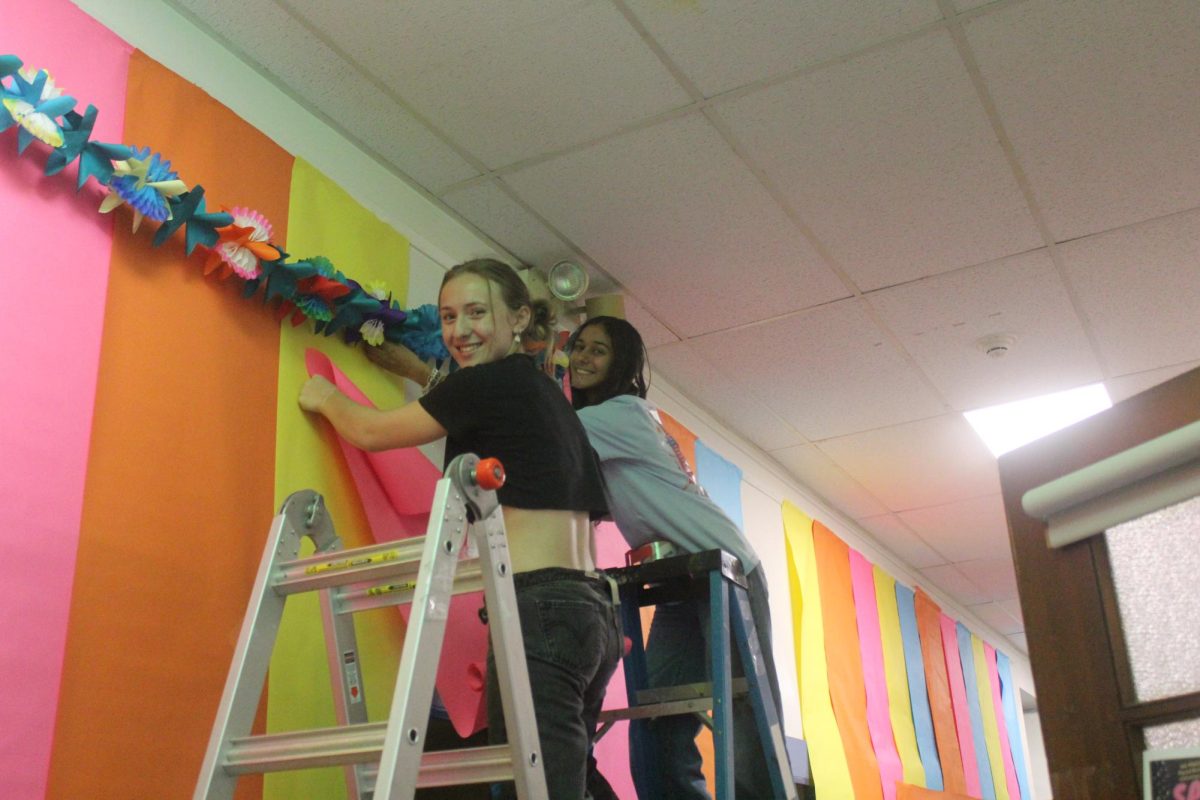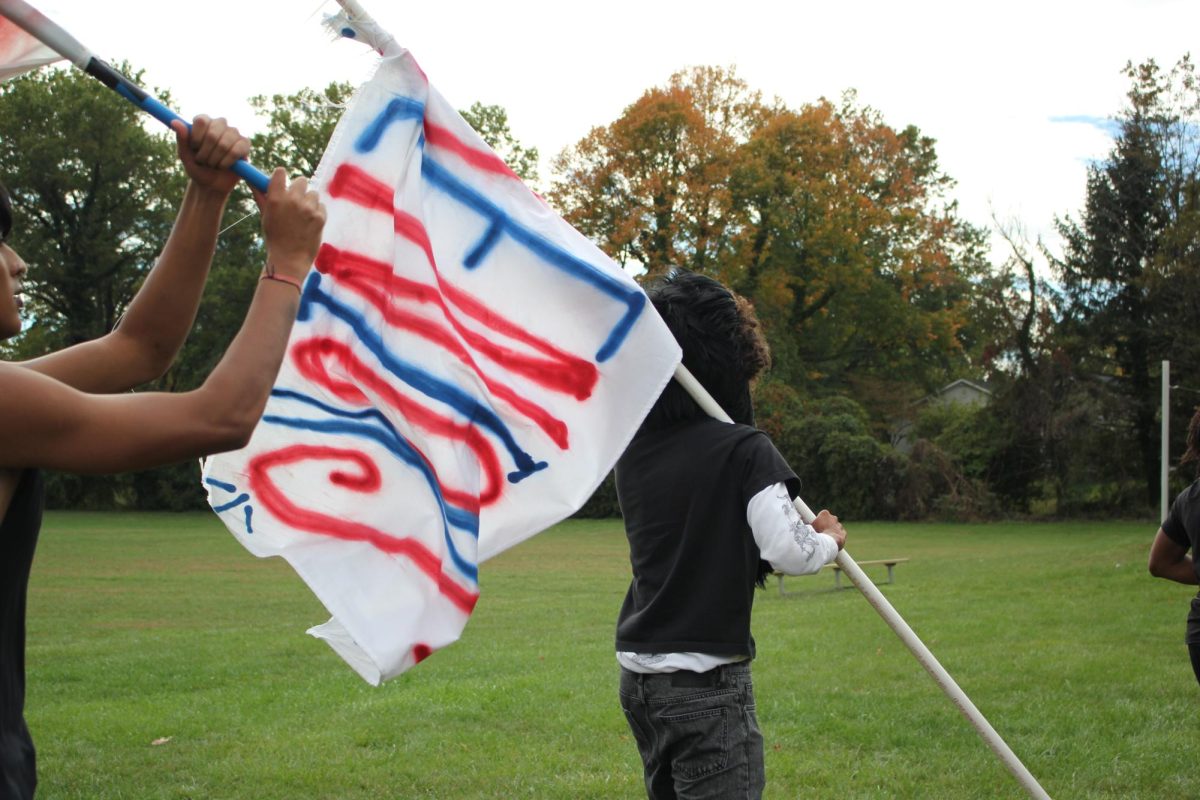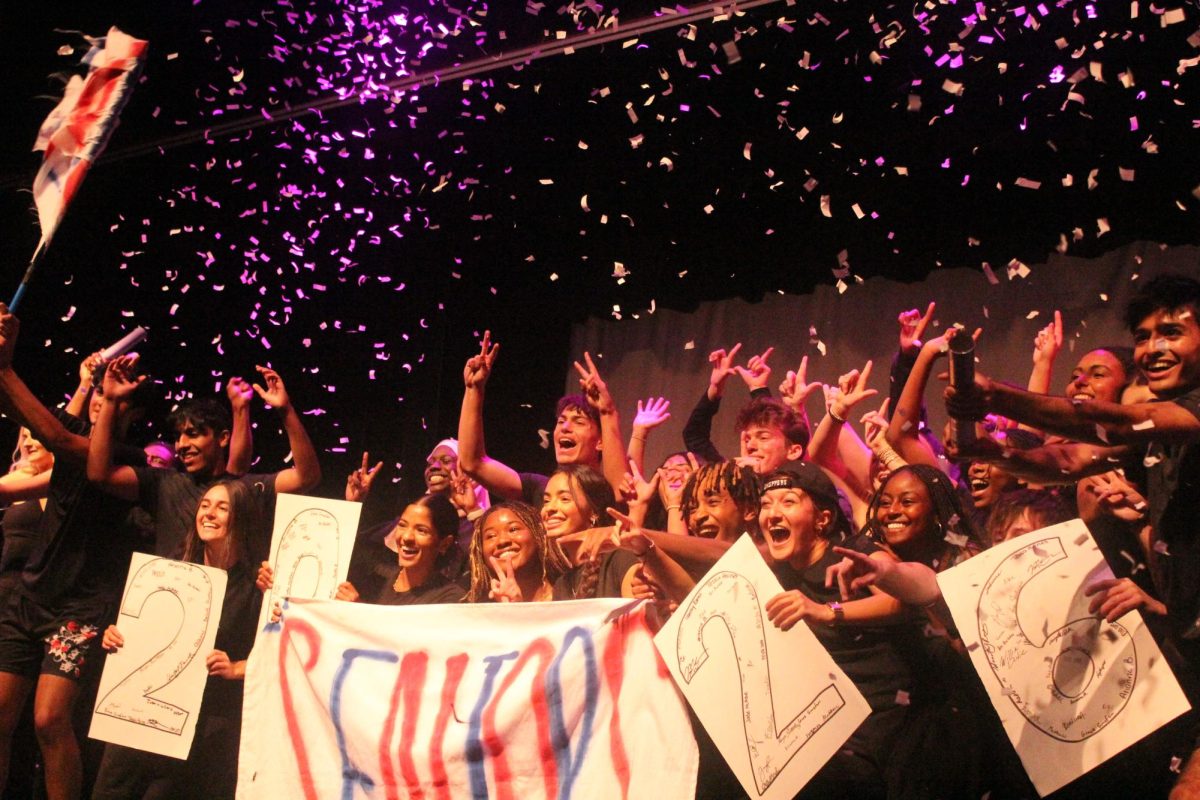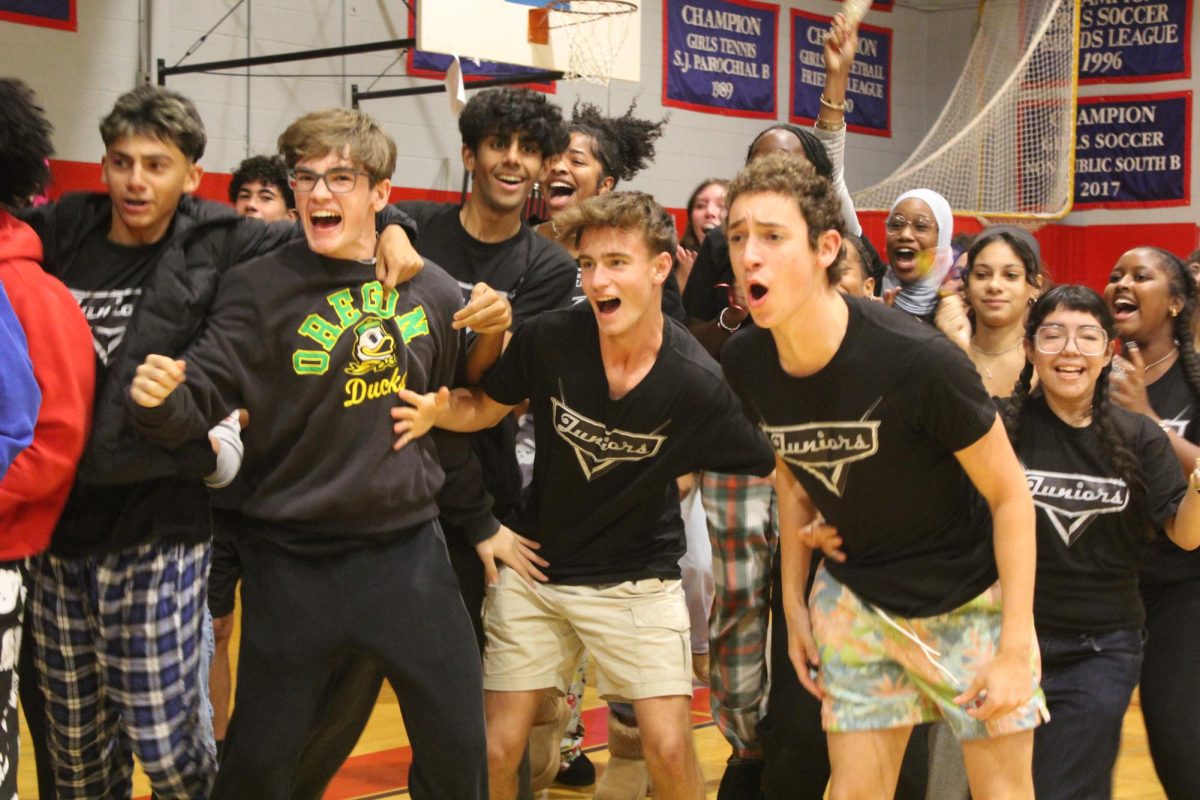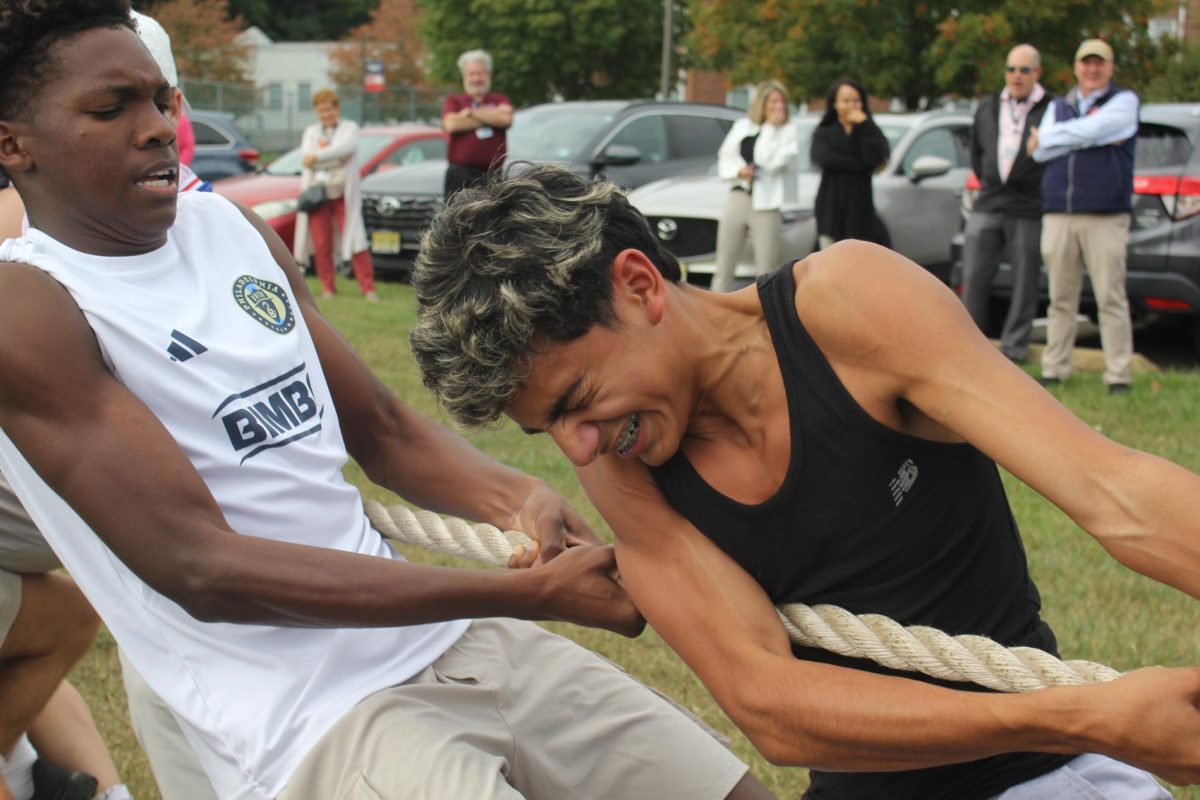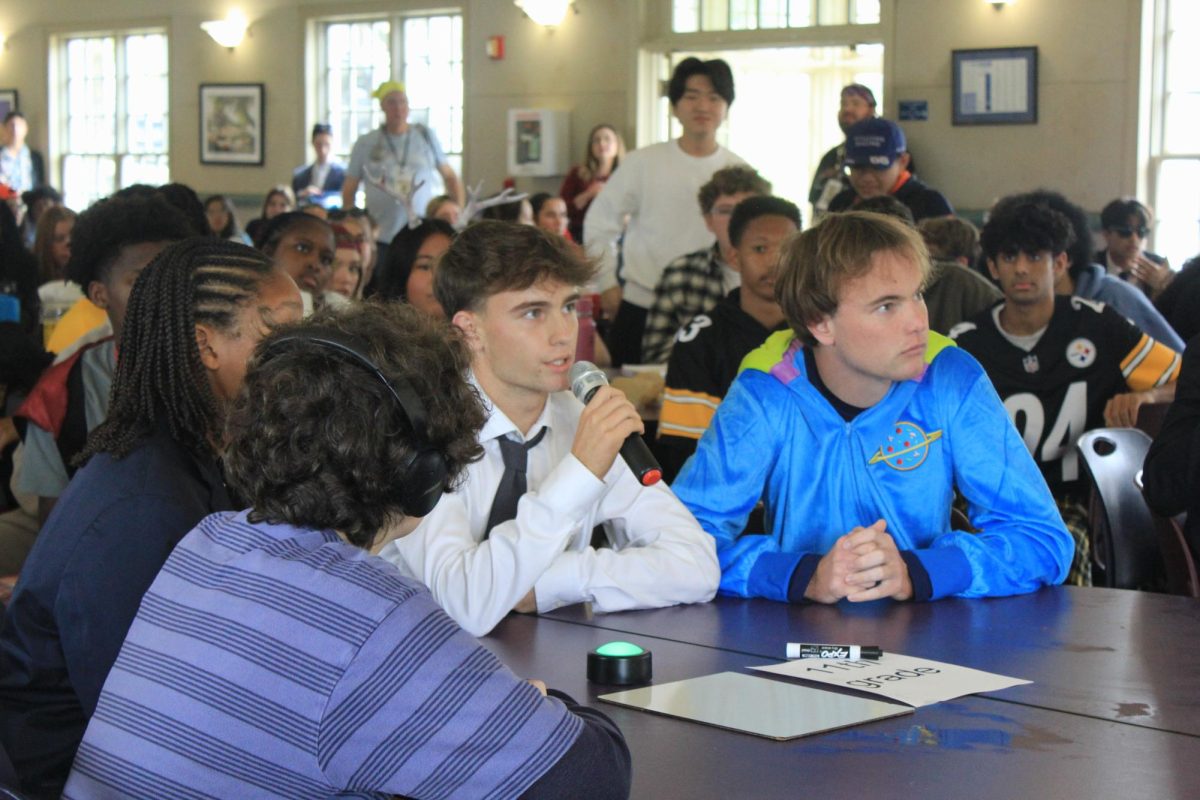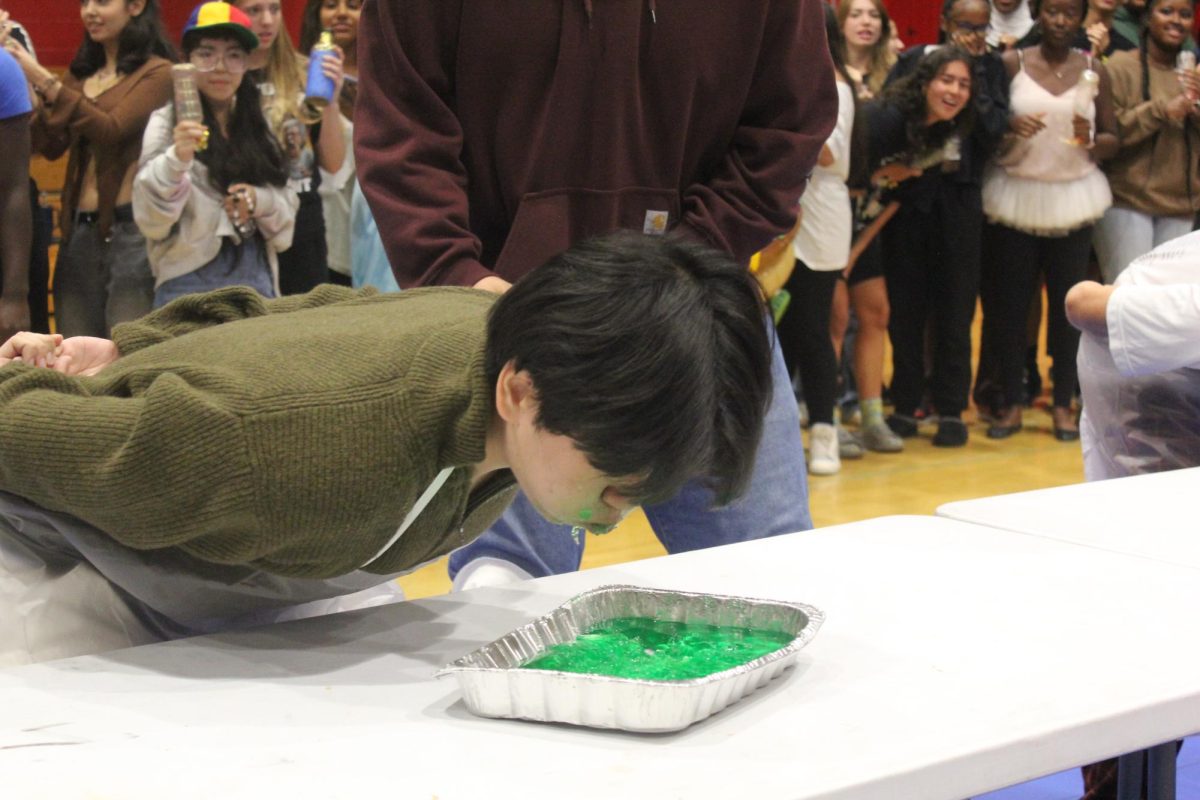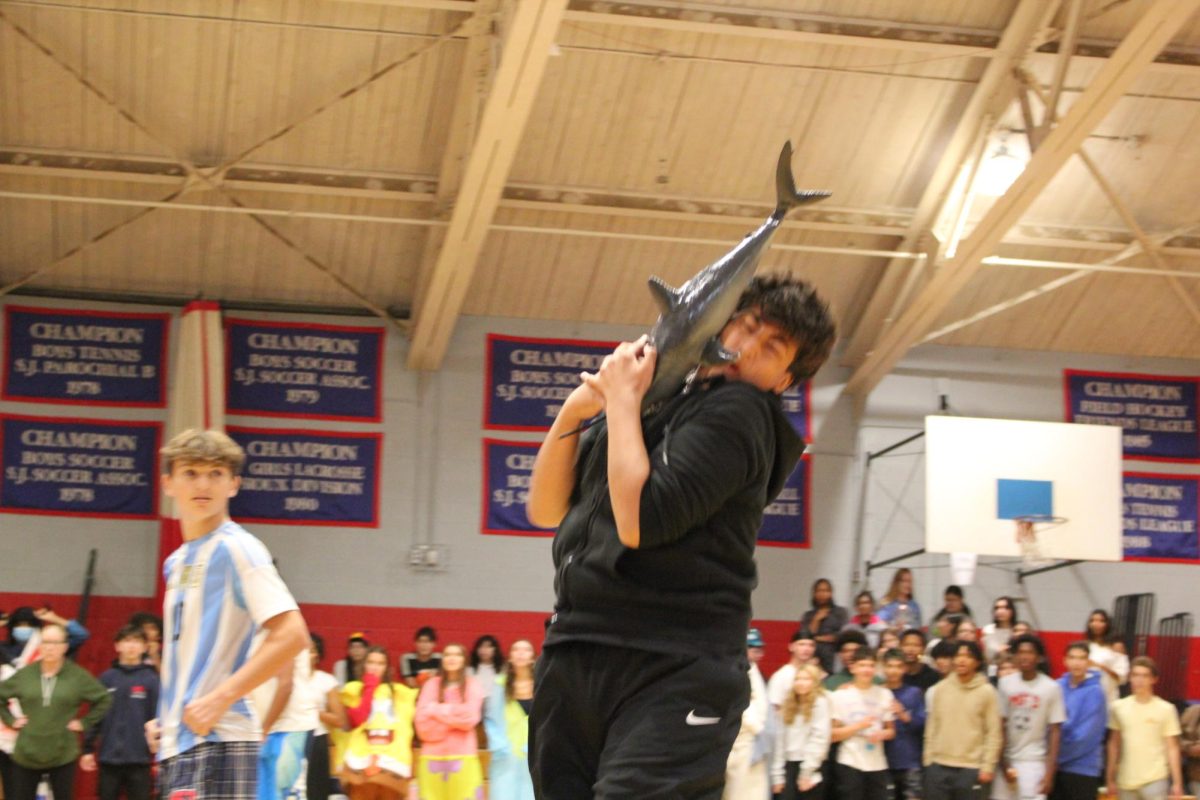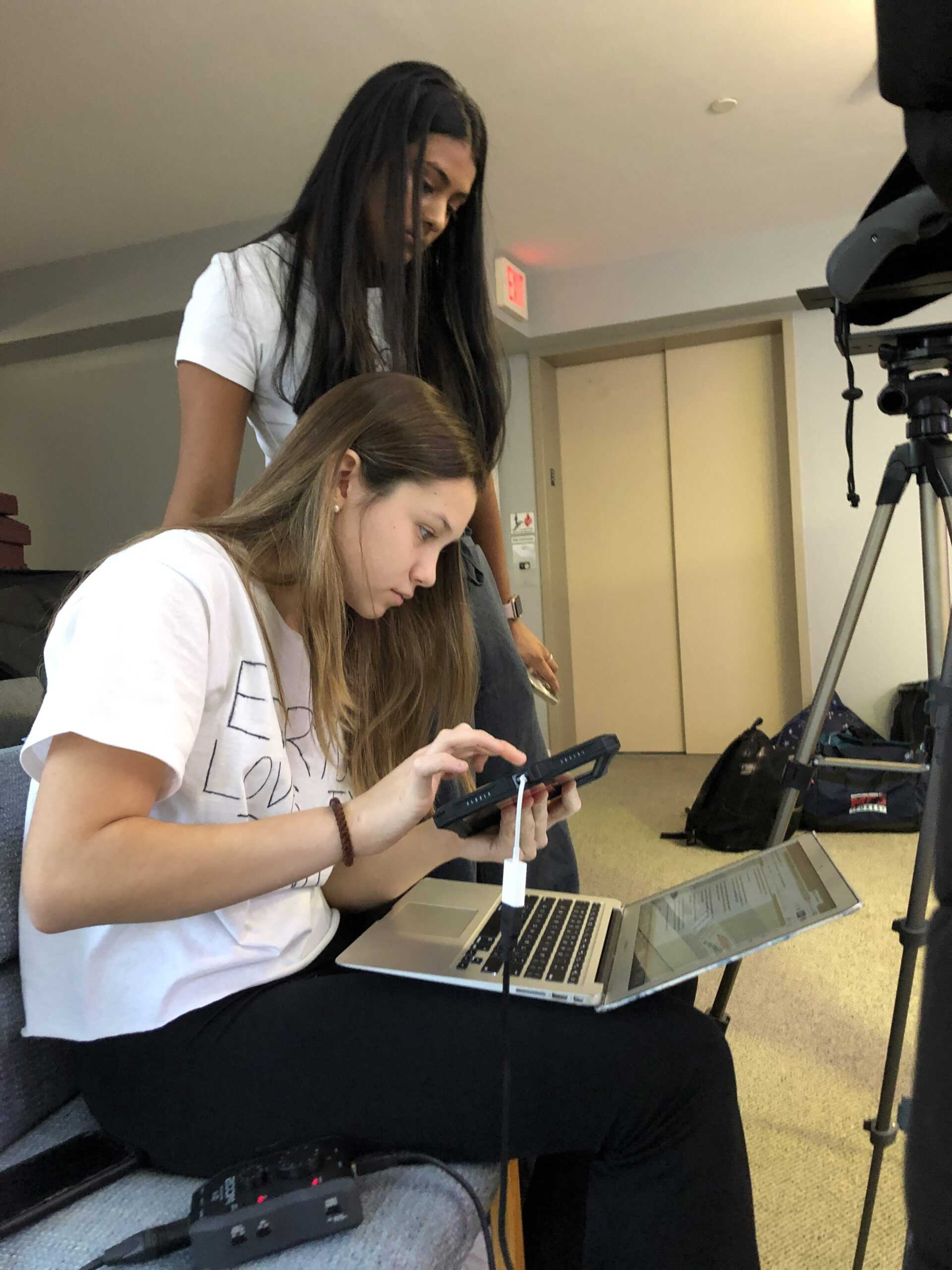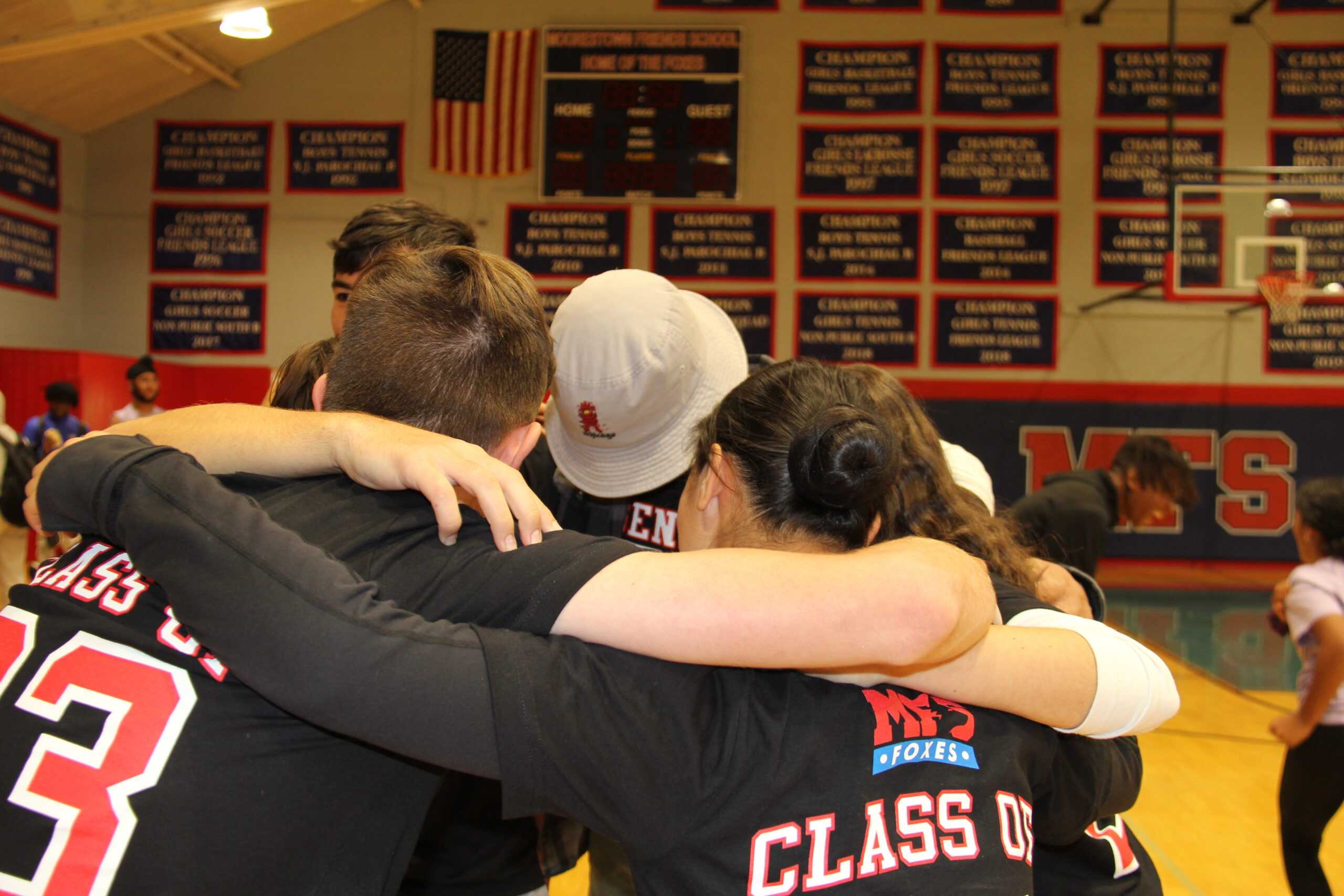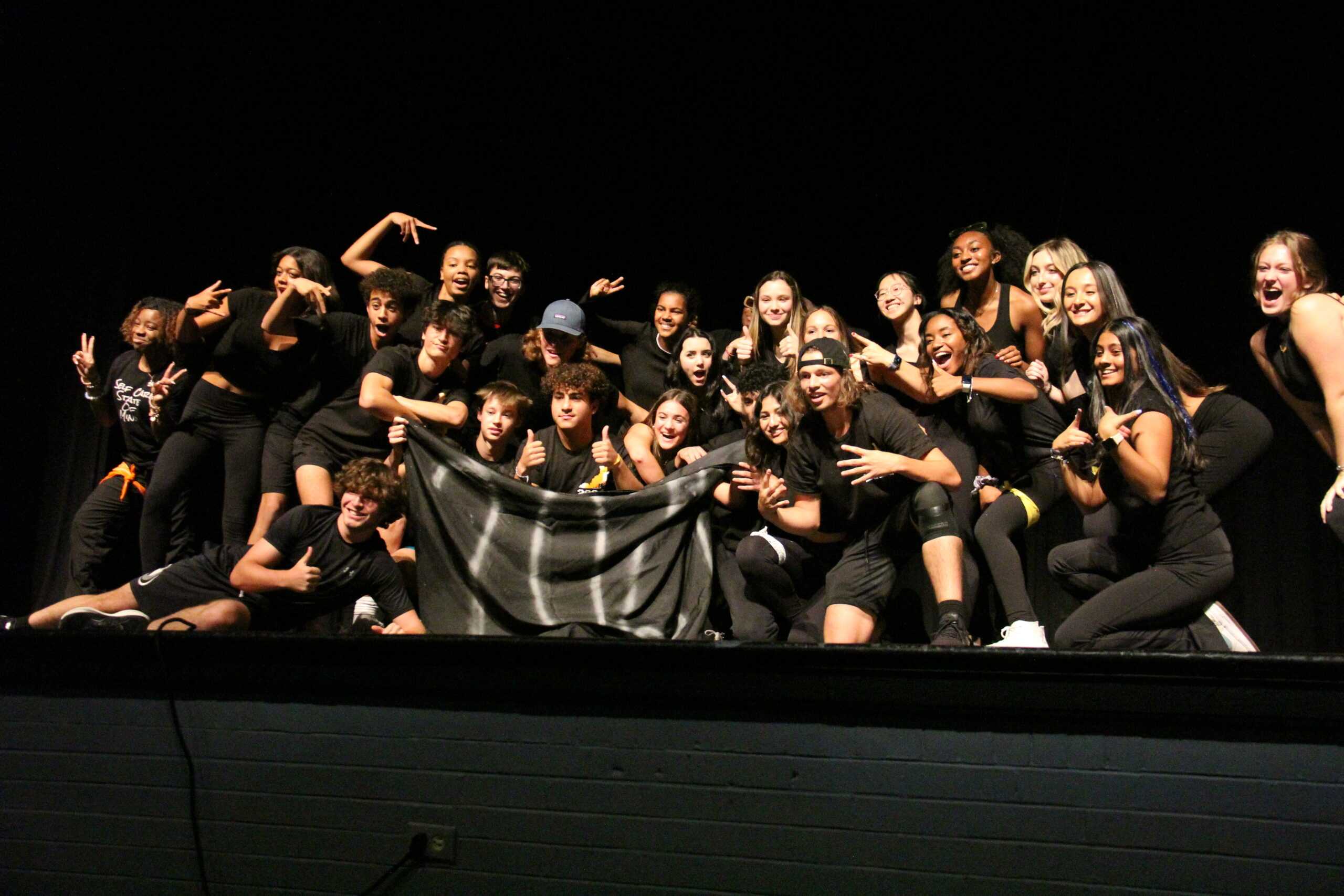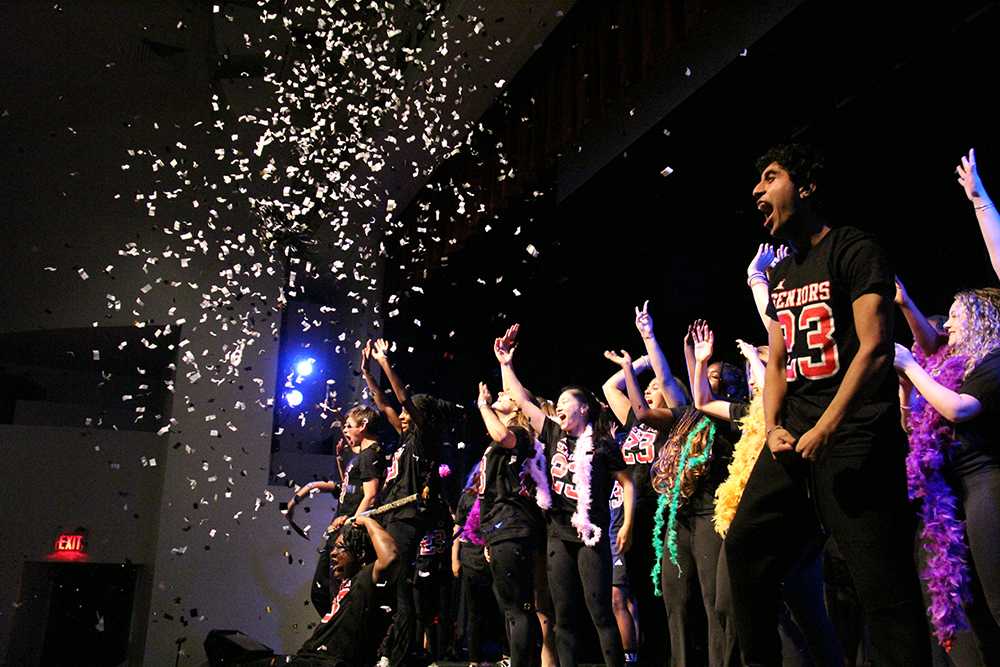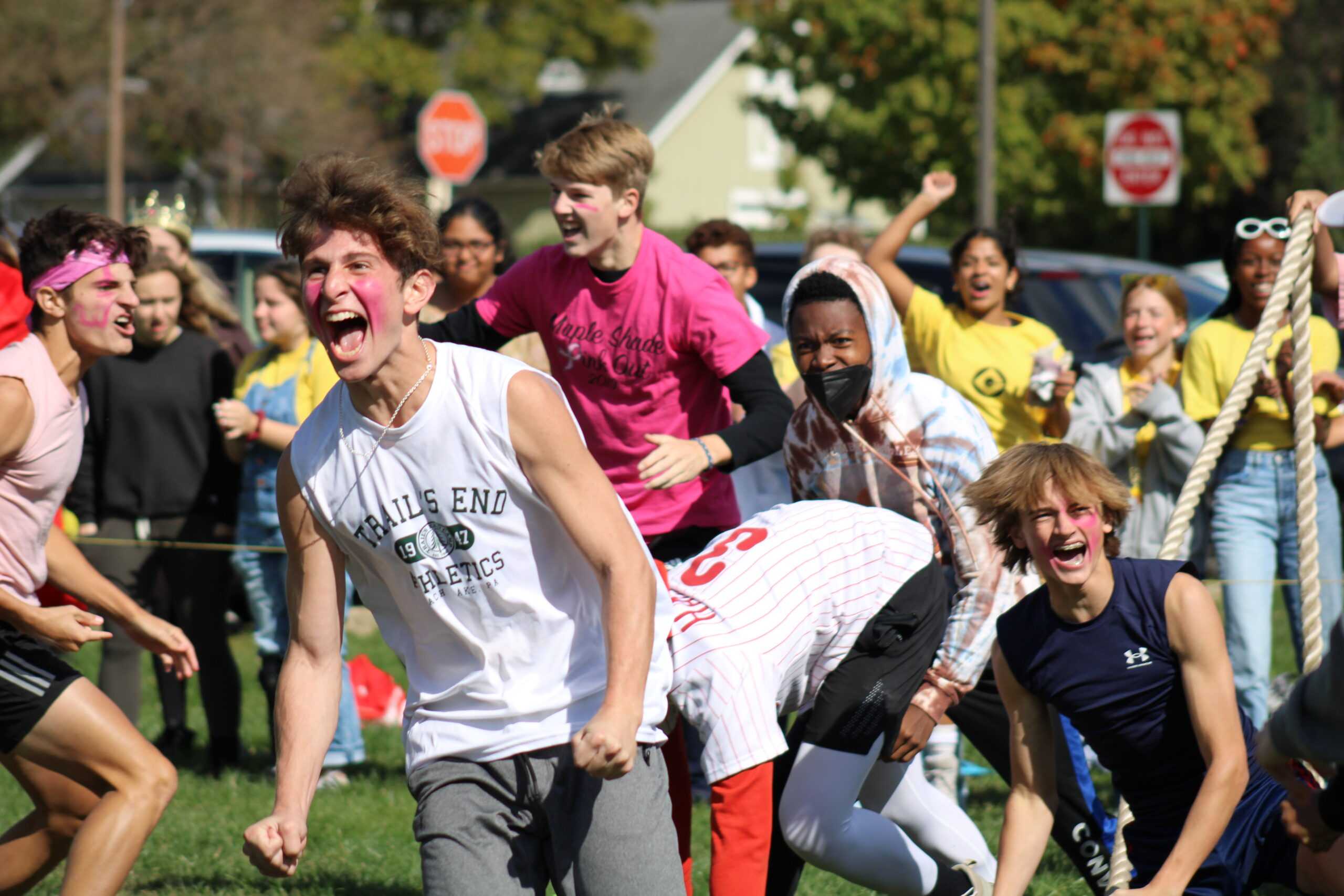On Friday, October 21, the Upper School gathered to watch the final Spirit Week event, Airband.
Each grade prepared for several months by hosting meetings to teach choreography, with leaders emerging in an effort to ensure successful performances. The night before the live performances, every grade broke from their hallway construction to perform the final rehearsal of their Airband for Dean of Students Will Miller in the auditorium for approval.

The ninth grade kicked off the event, and the sophomores, juniors, and seniors followed with their respective performances. Andrew Zhou ’25, who participated in the sophomore airband performance, said, “I liked just performing; honestly, it was a lot of fun being on the stage dancing.”
Chase Konzelmann ’25 added, “I think all of the grades did a great job … I think everyone was pretty coordinated when we did our dances.” In regards to the Class of 2025, Konzelmann commented on future plans that could potentially improve his grade’s overall product next year, remarking that “[Class of 2025 should] work on adding a bit more variety to our songs and dances.”
Miles Wilkins ’25 added that all of the grades performed well, and that he was “really happy with how the ninth grade came out and [performed] … watching them perform and doing awesome was a lot of fun.”
While the general Upper School reaction to this year’s Airband was overwhelmingly positive, a controversy during the ninth grade’s performance sparked conversation regarding the event’s final results .
Around the midpoint of what had, up to that point, been an incredibly energetic performance, a ninth grader on stage held up what appeared to be an inappropriate hand gesture. While it was difficult to gauge the immediate crowd reaction, interviews with both the student in question and other Upper School students seemed to indicate some sort of misunderstanding; no points were deducted from the ninth grade airband score. The student in question, who asked to not be named, commented, “I made a mistake … I just hope the grade isn’t punished for it. People as a whole seem to kind of begin to start getting it, and they’ve been pretty receptive to [our explanation], which is awesome.”


